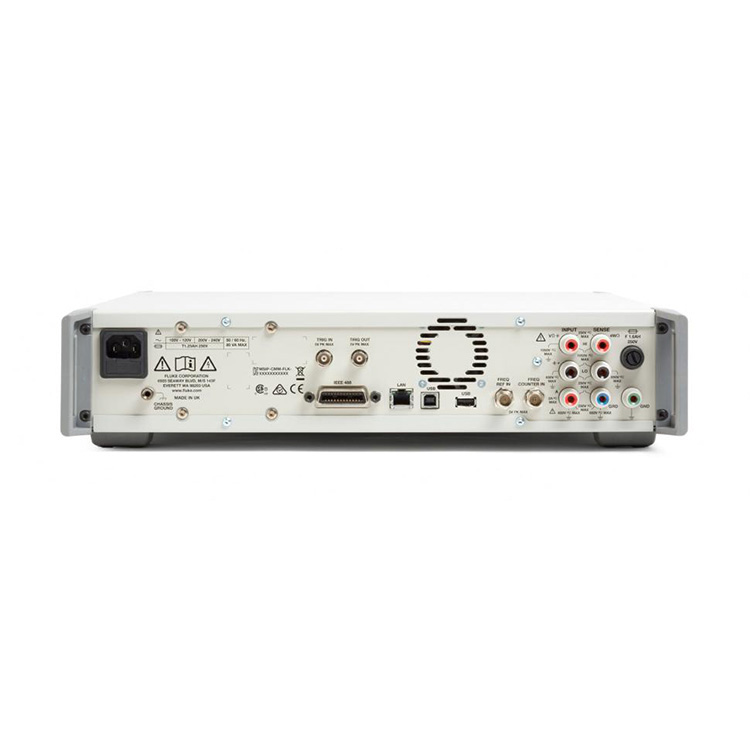Types of Digital Multimeters
2024-06-04
A digital multimeter (DMM) is a versatile instrument used to measure electrical properties such as voltage, current, and resistance. It’s an essential tool for electricians, technicians, and engineers for troubleshooting electrical problems and testing circuits. Here's a comprehensive guide to digital multimeters, including features, benefits, types, usage tips, and maintenance:
Key Features of Digital Multimeters:
1. Display:
- A digital display shows the measurement readings in a clear, precise manner. Most DMMs have an LCD screen, while high-end models might offer backlit displays for better visibility in low light conditions.
2. Measurement Functions:
- Voltage (AC/DC): Measures the electrical potential difference between two points.
- Current (AC/DC): Measures the flow of electric charge.
- Resistance: Measures how much a material resists the flow of electric current.
- Continuity: Tests if there is a complete path for current flow.
- Capacitance: Measures the ability of a component to store an electric charge.
- Frequency: Measures the frequency of an AC signal.
- Temperature: Some models include a thermocouple for temperature measurement.
3. Auto-Ranging:
- Automatically selects the appropriate measurement range, making it easier to use and reducing the chance of errors.
4. Safety Features:
- Input Protection: Protects the meter and user from overvoltage or misuse.
- Category Ratings (CAT I to CAT IV): Indicates the level of transient protection provided by the meter.
5. Additional Features:
- Data Hold: Freezes the display reading for easier viewing.
- Min/Max/Average Recording: Captures the minimum, maximum, and average readings over a period.
- Auto Power Off: Saves battery life by turning off the meter after a period of inactivity.
- True RMS: Provides accurate readings for AC signals, including non-sinusoidal waveforms.
Benefits of Digital Multimeters:
1. Accuracy:
- Provides precise measurements, essential for diagnosing and troubleshooting electrical issues accurately.
2. Versatility:
- Combines several measurement functions in one device, making it a valuable tool for various applications.
3. Ease of Use:
- Digital displays and auto-ranging features simplify the measurement process.
4. Portability:
- Compact and lightweight, making it easy to carry and use in different locations.
Types of Digital Multimeters:
1. Handheld Multimeters:
- Portable and ideal for fieldwork and on-site measurements.
2. Benchtop Multimeters:
- Larger, more precise, and feature-rich, suitable for laboratory or industrial use.
3. Clamp Meters:
- Specialized DMMs that include a current clamp for measuring current without direct contact with the conductor.
Usage Tips:
1. Select the Correct Function:
- Ensure the multimeter is set to the correct measurement function (voltage, current, resistance, etc.) before use.
2. Use Proper Probes:
- Use the appropriate probes for the measurement type and ensure they are in good condition.
3. Observe Polarity:
- When measuring DC voltage or current, observe the correct polarity to avoid damage or incorrect readings.
4. Start with Higher Range:
- When unsure of the measurement value, start with the highest range and work downwards to avoid overloading the meter.
5. Safety First:
- Follow safety guidelines, such as disconnecting power before measuring resistance or continuity, and using the correct input jacks and settings.
Maintenance Tips:
1. Regular Calibration:
- Calibrate the multimeter periodically to maintain accuracy, especially for professional use.
2. Battery Check:
- Regularly check and replace the battery to ensure consistent performance.
3. Cleanliness:
- Keep the multimeter and probes clean and free of dust and debris. Use a soft, dry cloth for cleaning.
4. Proper Storage:
- Store the multimeter in a protective case to avoid damage and exposure to extreme temperatures or moisture.
Popular Brands and Models:
1. Fluke:
- Known for high-quality, reliable multimeters suitable for professional use.
- Example models: Fluke 117, Fluke 87V.
2. Klein Tools:
- Offers a range of durable and affordable multimeters.
- Example models: Klein Tools MM400, MM700.
3. Extech:
- Provides a variety of multimeters with good features at competitive prices.
- Example models: Extech EX330, EX505.
4. Keysight (formerly Agilent):
- Known for precision and high-end multimeters for laboratory use.
- Example models: Keysight U1232A, U1253B.
Conclusion:
Digital multimeters are indispensable tools for anyone working with electrical systems. They provide accurate measurements of voltage, current, resistance, and other electrical properties, facilitating efficient troubleshooting and testing. Choosing the right DMM involves considering factors such as measurement functions, accuracy, safety features, and build quality. Regular maintenance and proper usage ensure the longevity and reliability of the multimeter, making it a vital asset in any electrical toolkit.



